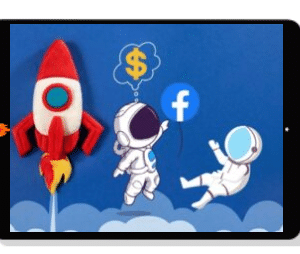Description
Transform your practice to heal anxiety, stress and trauma, sleep, eating disorders, and addiction and pain with this Intensive Workshop.
C. Alexander and Annellen M. Simpkins – Hypnosis Intensive Workshop: Applying Clinical Hypnosis with Psychological Treatments
The unconscious is a reservoir of potential, and hypnosis is the way to access that potential. Neurological pathways function automatically and can be engaged and used to help heal disorders that might be difficult to do deliberately and consciously. By working indirectly and unconsciously in hypnosis, you bypass your client’s conscious limitations and enlist resources to help resolve entrenched problems.
Go into self-hypnosis
Work with a partner to do a pre-trance interview to discover abilities and help for individualizing in trance
Induce trance
Use direct and indirect suggestion
Deepen trance with hypnotic phenomena
Elicit relaxation and calm
Activate positive unconscious processes
Successfully end trance
This is your opportunity for personal self-transformation as you also learn about hypnotic techniques that can be applied for clients.
If you are new to hypnosis, you will gain the skills you need to start using hypnosis in your practice. And if you are an experienced hypnotherapist, you will add innovative methods to enhance your work. With the latest research, case examples, guided trance experiences, opportunities to work with trance induction, helpful handouts, protocols, and a clear understanding of hypnotic effects in the brain, this workshop will inform, uplift, and transform.
Handouts
Manual – Hypnosis Intensive Workshop: Applying Clinical Hypnosis with Psychological Treatments (7.9 MB) 173 Pages Available after Purchase
Outline
Day 1: Skill Building in Self-Hypnosis and Hetero-Hypnosis
Working with the Unconscious
Paradigm Shift on the Unconscious
East-West Correlation
Neuroscience Research Support
Research for Working Unconsciously
Advantages of Hypnosis
How Hypnosis Affects the Brain
Unconscious Intelligence
Hypnosis Dual Effect
Hypnosis and Executive Control
Default Mode Network
Suggestion
Direct and Indirect
Post-hypnotic
4-Step Method to Overcome Negative
Self–Suggestions
The Mind-Body Link
Trancework
Natural Unconscious Tendencies
Go In and Out of Self-Hypnosis
Deepen with Hypnotic Phenomena
Hetero-Hypnosis with a Partner
Practice Establishing Rapport and
Discovering Hidden Abilities
Rehearse Inducing trance in Several
Different Ways
Perform Trance Deepening
Elicit Trance Phenomena and Sensitize to Responsiveness
Several Different Methods for Ending
Trance Successfully
Day 2: Applying Hypnosis for Common Psychological Problems and Further Training in Hypnosis
Part I: Clinical Applications
Trauma and Stress
Anxiety
Substance Abuse
Pain
Eating Disorders
Sleep
The Neuroscience of These Common
Psychological Problems
Case Examples Utilizing Hypnosis for Treatment
Application Protocols
Experiential Exercises for Treatment
Part II: Skills Training for Fundamental in Hypnosis
Trance Practice
Pre-Trance Discussion
Induction Methods
Using Direct and Indirect Suggestion
Trance Deepening
Eliciting Calm and Comfort in Trance with
Post-Hypnotic Suggestions
Promoting Positive Use of the Unconscious
Ending Trance Techniques
Skills Demonstration
Pre-Trance Discussion Techniques
Successful Induction, Deepening and Ending of Trance
Eliciting Relaxation and Calm
Demonstrate Sensitivity to and Utilization of Partner’s Responsiveness
Conclusion
Principles to Guide Your Hypnotherapy
Final Trance
Faculty
C. Alexander and Annellen M. Simpkins, Ph.D.
Co-Authors
C. Alexander Simpkins, Ph.D. & Annellen M. Simpkins, Ph.D, are psychologists specializing in neuroscience, psychotherapy, meditation and hypnosis. Drs. Simpkins have been practicing psychotherapy for more than three decades; and have been researching and practicing hypnotherapy and meditation for four decades, studying hypnosis under G. Wilson Shaffer, dean of Johns Hopkins University, and Director of the Hopkins Counseling Center; hypnotherapy under Harold Greenwald, creator of Direct Decision Therapy; and indirect hypnosis with Milton H. Erickson and Ernest Rossi. They have taught their meditative and hypnotic methods to facilitate mind-brain change to people of all ages. Additionally, they have been involved in neuroscience for 15 years and have been integrating it into treatments and helping to bring the most recent research findings to practitioners. They present seminars at professional conferences, state mental hospitals, university campuses and to popular and professional audiences around the world.
The Simpkins are authors of 26 books, many of them bestsellers. Their most recent book is Yoga & Mindfulness Therapy Workbook for Clinicians and Clients (PESI, 2014). Drs. Simpkins have written many books on neuroscience such as, Neuroscience for Clinicians (Springer, 2012), The Dao of Neuroscience (Norton, 2010) and Neuro-Hypnosis (Norton 2010); as well as hypnosis titles: Self-Hypnosis for Women (Radiant Dolphin press, 2004), and Effective Self-Hypnosis with CD (Radiant Dolphin Press, 2000). Their books have over 20 foreign editions and have won numerous awards.













